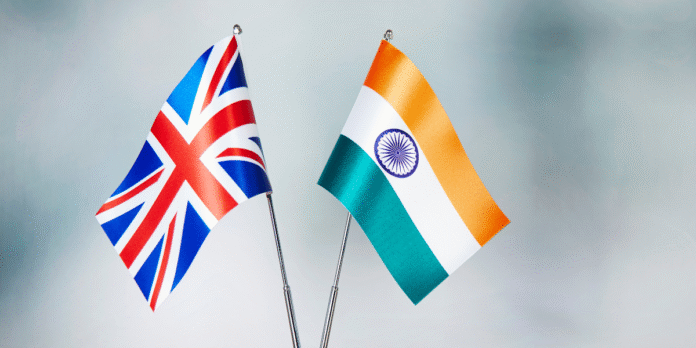In a significant development marking a new era of economic cooperation, India and the United Kingdom have officially signed a landmark Free Trade Agreement (FTA) aimed at increasing annual bilateral trade by approximately $34 billion. The agreement was signed on Thursday by Prime Minister Narendra Modi and UK Prime Minister Keir Starmer.
Under the deal, India will reduce tariffs on 90% of British goods, while the UK will lower duties on 99% of Indian exports. The pact is expected to ease trade across sectors by cutting tariff lines and simplifying regulatory frameworks.
Terming it a “major win for Britain,” Prime Minister Starmer stated on X that the FTA will generate thousands of jobs across the UK, unlock business opportunities, and drive nationwide growth.
For Indian consumers, the agreement promises cheaper access to imported goods such as Scotch whisky, gin, high-end automobiles, cosmetics, and medical devices. On the other hand, Indian farm produce will gain tariff parity with top European exporters like Germany, and zero-duty access for textiles and leather products is projected to enhance India’s competitiveness vis-à-vis Bangladesh and Cambodia.
India’s leather industry is poised to gain a 5% additional market share in the UK over the next two years. Exports of electronics and engineering goods are projected to double by 2030, while exports of gems and jewellery, currently valued at $941 million, are also expected to double within three years.
UK officials anticipate a nearly 60% surge in exports to India in the long term as a result of the agreement.
Prime Minister Modi began his official engagements in the UK with a meeting with Starmer at Chequers Estate, the official country residence of the British Prime Minister.
Later in the day, Modi is also scheduled to meet King Charles III and hold in-depth discussions with Starmer covering the full spectrum of India-UK bilateral relations. Topics include trade, technology, defence, climate change, education, and people-to-people ties under the Comprehensive Strategic Partnership framework.





